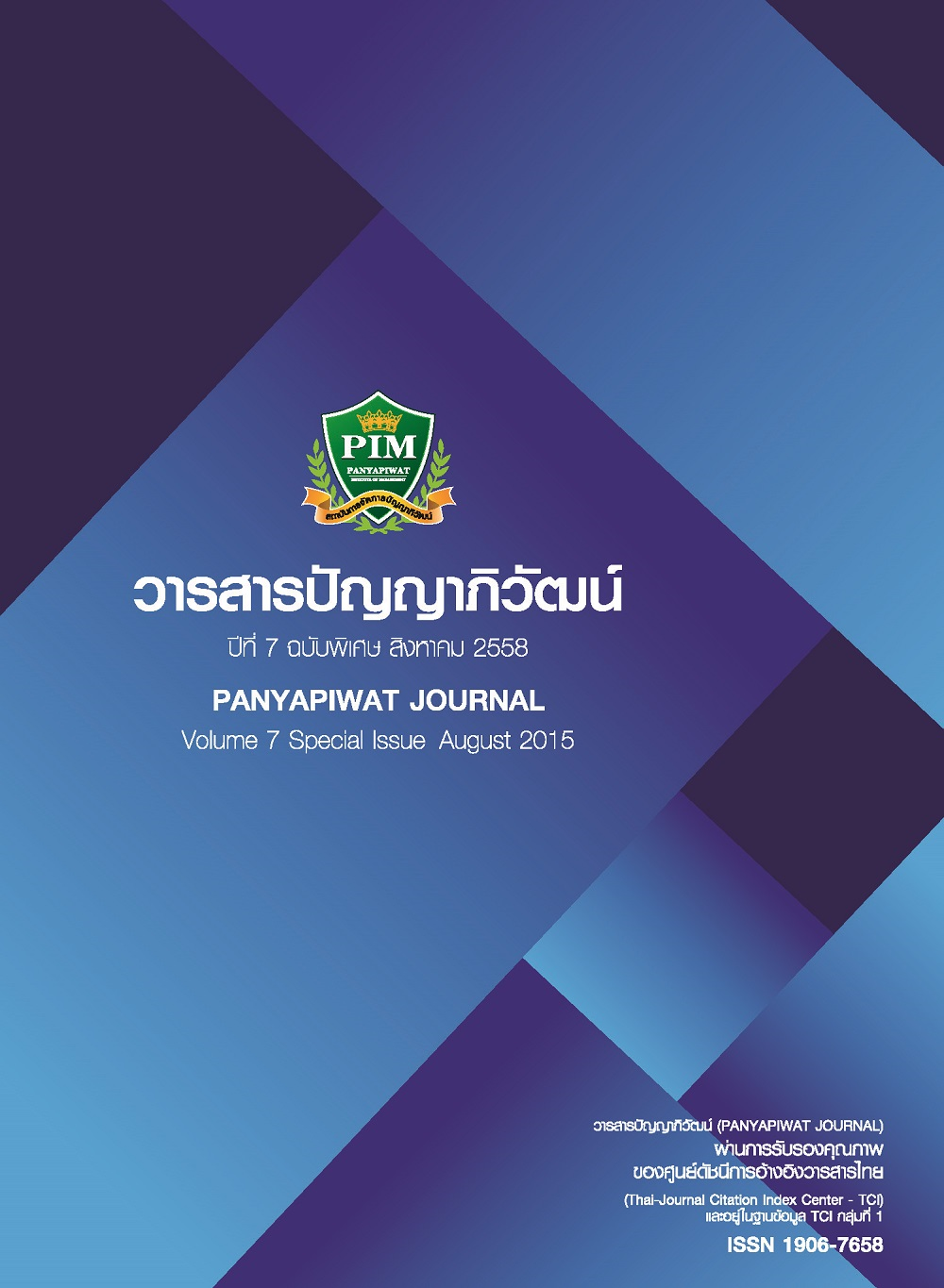武汉博物馆管理问题与对策
Main Article Content
บทคัดย่อ
本文以武汉博物馆作为研究对象,对其目前的管理体系进行研究,运用博物馆管理理论、系统管理理论、人力资源管理理论以及科学管理理论等,通过问卷调查和访谈分析对目前博物馆在藏品管理、陈列管理以及受众管理进行调查研究,分析了武汉博物馆管理体系现状,从中发现其在管理上存在的问题,包括传播力度和广度不够、基础设施陈旧、藏品保护缺乏科学管理、藏品保护意识弱等,这些问题的存在严重影响了武汉博物馆的发展,为了能有效地解决这些问题,提出了相应的对策,主要包括:在博物馆内部实行人力资源管理;加大宣传力度,成立推广部;加强库房基础设施建设;健全规章制度,实行科学管理等。通过这些措施来提升武汉博物馆的管理水平,从而改进武汉博物馆的管理工作,促进武汉博物馆未来的发展。
Therefore, this paper Wuhan Museum Management as a research object, using empirical, statistical and qualitative research methods, preliminary research by Wuhan museum management, questionnaires were analyzed by the current management of the museum, combing historical development of its management and by its collections, specific analysis displays, exhibitions, public development and education management, comparison, induction, in trying to manage the problems presented. Through the management of the current status of the museum's analysis, which found that the main factors affecting museums and museum management people, and funds, to address these issues put forward the corresponding countermeasures, countermeasures proposed solutions, the implementation of human resource management within the museum; increase propaganda, was established to promote the Department; strengthen the Treasury infrastructure; improve rules and regulations, the implementation of scientific management, etc., through these measures to improve the management level Wuhan Museum, and to guide the management of Wuhan Museum.
Article Details
“ข้าพเจ้าและผู้เขียนร่วม (ถ้ามี) ขอรับรองว่า บทความที่เสนอมานี้ยังไม่เคยได้รับการตีพิมพ์และไม่ได้อยู่ระหว่างกระบวนการพิจารณาลงตีพิมพ์ในวารสารหรือแหล่งเผยแพร่อื่นใด ข้าพเจ้าและผู้เขียนร่วมยอมรับหลักเกณฑ์การพิจารณาต้นฉบับ ทั้งยินยอมให้กองบรรณาธิการมีสิทธิ์พิจารณาและตรวจแก้ต้นฉบับได้ตามที่เห็นสมควร พร้อมนี้ขอมอบลิขสิทธิ์บทความที่ได้รับการตีพิมพ์ให้แก่สถาบันการจัดการปัญญาภิวัฒน์หากมีการฟ้องร้องเรื่องการละเมิดลิขสิทธิ์เกี่ยวกับภาพ กราฟ ข้อความส่วนใดส่วนหนึ่งและ/หรือข้อคิดเห็นที่ปรากฏในบทความข้าพเจ้าและผู้เขียนร่วมยินยอมรับผิดชอบแต่เพียงฝ่ายเดียว”
เอกสารอ้างอิง
范德伟.由观众调查引发的对博物馆工作的思考[J]. 文物春秋. 2005(04)
王钧光.浅谈博物馆整体形象与艺术表现的双重构筑[J]. 博物馆研究. 2008(02) 方光耀.试论博物馆的管理创新[J]. 南方文物. 2004(01)
帕特里克·博伊兰,宋向光. 博物馆管理变革与博物馆从业人员培训[J]. 古今农业. 2003(03)
呼啸.博物馆构建社区的多元视角——以陕西三座博物馆为例[J]. 文博. 2014(03)
沈丽娟.台湾地区的私立博物馆及其启示[J]. 中国博物馆. 2014(02)
马明鸿.黔东南州民族博物馆的发展问题与对策研究[J]. 才智. 2014(21)
史吉祥.也谈博物馆学会的任务[J]. 中国博物馆. 1995(02)
陈燮君.“致力于社会和谐”的博物馆管理[J]. 上海文博论丛. 2010(03)
吴正国.关于质量文化的思考[J]. 襄樊职业技术学院学报. 2010(04)
刘洪.以“观众满意”为目标构建博物馆服务运行机制[J]. 中国文物科学研究. 2009(04)
Translated Chinese References
Boylan, P. J. & Song, X. (2003). A revolution in Museum Management Requires a Revolution in Museum Professional Education and Training. Ancient and Modern Agriculture, (3).
Chen, X. (2010). Museum devoted to social harmony. Shanghai Wenbo, (3).
Fan, D. (2005). Reflections on the work of the museum caused by the audience. Wenwu Chunqiu, (4).
Fang, G. (2004). On the management innovation of the Museum. Relics Form South, (1).
Hu, X. (2014). Multi perspective of the construction of the museum community -- a case study of three museums in Shaanxi. Wenbo, (3).
Liu, H. (2009). To “audience satisfaction” as the goal to build a museum service operating mechanism. Zhongguo Wenwu Kexue Yanjiu, (4).
Ma, M. (2014). Research on the development of the National Museum of Qiandongnan. Intelligence, (21).
Shen, L. (2014). Private museums in Taiwan and their implications. Chinese Museum, (2).
Shi, J. (1995). The Museum Society Task. Chinese Museum, (2).
Wang, J. (2008). Double construction of Museum of overall image and artistic Expression. Museum Research, (2).
Wu, Z. (2010). Thinking about the Quality Culture. Journal of Xiangfan Vocational and Technical College, (4).


